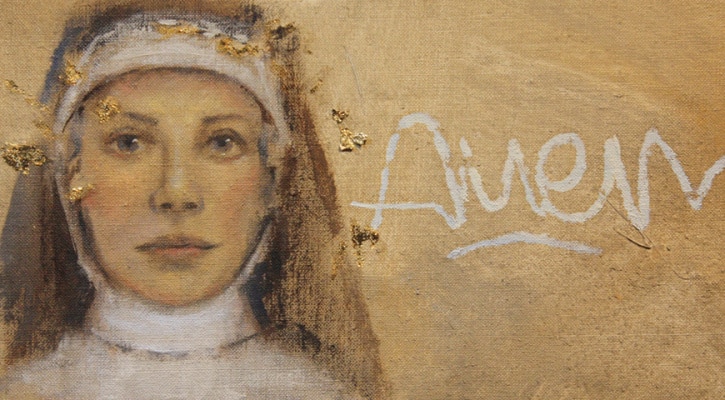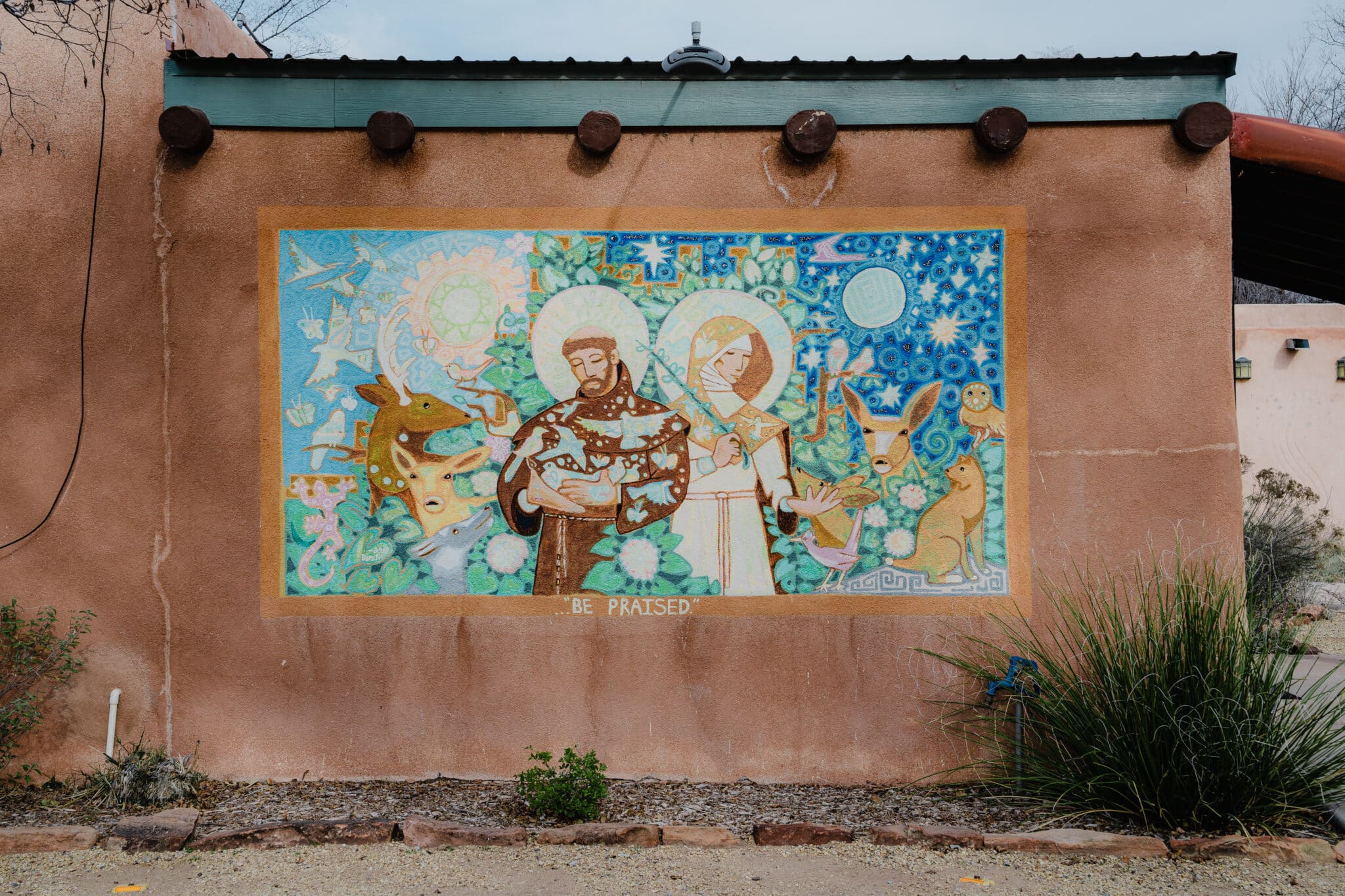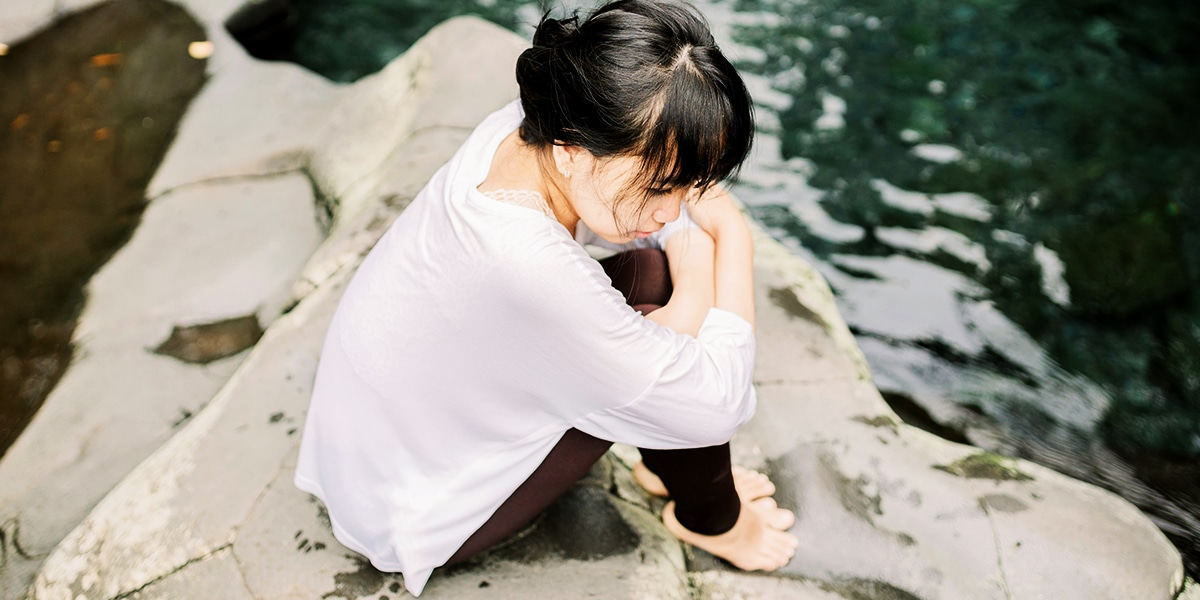I’ve never been a fan of religious icons, I blush to tell you. Their typical flat formality must please admirers of the prayerful art form, but their subjects are seldom depicted with smiles on their faces.
Recently I discovered an icon I can appreciate. In the image, created by Franciscan Brother Robert Lentz, St. Clare of Assisi cradles a cat in her arms! Neither Clare nor the monastery’s cat is smiling broadly, but no one feeling the vibration of a robust purr can keep from smiling for long!
This is a Clare I can embrace. I want to honor her guidance in my prayer life. This is the saint who is followed with great joy by women in monasteries. No one ever suspected I was called to an enclosed life. If you are, bless you. But all of us can find in Clare some markers on the path to communion with the divine.
Biographers describe the youthful Clare as beautiful. The Clare who spent decades bedfast yet bold in leadership, gentle in guidance, and stubborn in poverty, is less physically attractive but more courageous and inspiring. Two episodes from her life—one small and private, one big and brave—exemplify her confidence in divine guidance.
Let Your Jar Go Empty
Francis and his brothers begged on behalf of the sisters. In a tale reminiscent of Elijah and the widow (1 Kgs 17:8‚ 16), the women ran out of oil. Clare washed a jug and left it out for one of the brothers to use in begging for more. When the brother came, he found the jug was already full.
In this early story, I have found a parable of the poverty to which Clare was dedicated. The emptiness which the sisters promised is my need also. Clare knew that with spiritual clarity. Some days I share that vision. More often, however, my jar requires extensive scrubbing, rinsing, and reexamination before anyone—however divine—could bear to share the “oil of gladness” with me. It takes freedom from desire and freedom from fear to place the jar out to receive what I need. Many times, I don’t even know what I need. Probably not oil. I am more in need of emptiness. Clare has given me a concrete example of what that could bring me.
Freedom From Things
If Pope Francis gave me an order, I’m pretty sure I would bend. Four popes told Clare that the sisters needed financial security. They counseled her against the “privilege of poverty,” even discouraging the friars from caring for the sisters. Perhaps they wanted to scare them. But Clare was adamant. She persevered through her long illness until she was assured of her claim to nothing. Then she died.
It’s possible to have things and yet be free from them. It’s also possible to give things away but long to have them back. More than 50 years ago, I gave my best doll to the Red Cross, dressed in her green velvet coat. I would welcome an assurance that some other girl loves her as much as I did. That’s not the idea.
If I’m to be truly prayerful, I must let go of not only my doll, but also Mom’s china, a bulging collection of bath towels (in search of the perfect hue), and my dream of a pergola with wisteria. Clare slept on a straw mat, but she was happier than I am: less laundry, no insurance bills, plus a cat. I find it a different emptiness than the jar for oil—my inner self.
The privilege of poverty, as much as I can embrace it, is an outer simplification. Advancing age reveals it to me, but Clare shows me how to maximize its revelations.
Mirrored in the Monasteries
Back in the ’80s, I stayed one Saturday night at a Poor Clare monastery in the Bronx. The neighborhood seemed downtrodden. The Poor Clares were bright lights in brown habits. While I worshipped in the body of the church, the sisters attended Laetare Sunday Mass behind a curtained grille.
While we ate breakfast, I found all the sisters in shades of Laetare pink—scavenged from castoffs donated for the neighbors all around. It was theirs only for the day. Some outfits were amusing, others classy, and some looked suspiciously like bathrobes. Clare had taught them well.
When I visited the monastery at San Damiano, I saw two small bouquets of wildflowers: one at Clare’s place in the dining hall, the other at the site of her pallet. She seemed so real there, more than any icon could reveal. Happy women had picked and placed those flowers. A happy woman had fought for the privilege.
To become more prayerful, start to smile at the ways you are rich and smile at the ways you are poor. That smile might break into laughter. That’s what happens to the followers of Clare.
Tips: In the Spirit of St. Clare
1. Give something you love away. Pray to let go both before and after.
2. Place an empty jar that once held oil where it will call you to be open and empty.
3. Poor Clares often offer spiritual direction and guidance. Search for a monastery in your area—or see if virtual visits are possible.
Prayer of St. Clare
St. Clare wrote four letters to St. Agnes of Bohemia. While medieval in style, they offer insight into Clare’s own prayer.
With swift pace, light step,
[and] unswerving feet,
so that even your steps stir up no dust,
go forward,
securely, joyfully, and swiftly,
on the path of prudent happiness.
—Second Letter to St. Agnes








